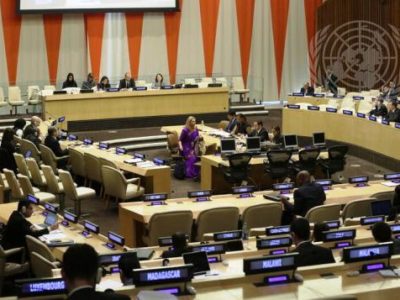Fighting VoIP the losers’ way
IP (Internet Protocol) enthusiasts and the protagonists of cheap calls will have to count their losses in Egypt where Telecom Egypt, the state-owned incumbent telco, which controls the country’s mobile infrastructure has banned international voice over Internet Protocol (VoIP) calls made from mobile devices. For Egyptians and those visiting Egypt, the budget on talk is set to climb up against global trend of steadily crashing cost of talk.
The immediate victims are Egypt’s main three mobile operators – ‘Mobinil, Etisalat Egypt and Vodafone Egypt – all of which offer Internet access via mobile phones and USB dongles,’ as one commentator noted. The IP party ended when Telecom Egypt reported a 13% fall in annual revenues in March 2010. Blaming its falling revenues on the IP driven services of mobile operators who ride on its infrastructures to drive their web-based services, Telecom Egypt simply pulled the plug and ‘banned international VoIP calls made from mobile devices within the country.
Egypt is setting itself against the wind. It certainly cannot hold back the change that VoIP has brought into the entire spectrum of the telecom industry. In the last 10 years, many African countries have had to legalize VoIP having come to terms with the reality of web-driven telecommunication services that come at nearly 0.1 percent the cost of delivering such services through the traditional Public Switch Network (PSTN).
VoIP have helped to crash the cost of talk, particularly international talk in most African countries by nearly 1000% such that in countries like Nigeria and Ghana where the cost of calling overseas used to be up to 10 dollars (about N1, 400) per minute; the same minute of talk has crashed to less than a cent (less than N14). Thanks to the Internet, talk is cheap.
But incumbents have had to put up a tough fight against VoIP. Because the advents of deregulation on the continent ushered in smarter and more creative network operators deploying IP technologies or soft switches to deliver cheaper talk and a host of other telecom services, PSTNs (as is the case with Egypt Telecom) have had to use the force of retrogressive laws in some telecom regimes to tame the rapid uptake of cheaper IP solutions.
In the early days of VoIP when most of Africa made the use of VoIP illegal, the consequence was the emergence of grey VoIP providers selling VoIP services illegally to an increasing number of consumers without passing the bulk of the end dividends to the consumers or to the state. However, since 2005, most of the continent slowly but gradually opened up to VoIP; allowing the use of IP to drive services and helping to crash the cost of talk and the amassing of illegal profits within the grey market.
Nigeria offers a classic example of this shift. There were numerous grey market operators of VoIP services six or seven years ago on the international call route when the regulator was still uncertain on what to do with VoIP. Tariffs on local calls were dropping but international call charges remain high and lucrative on the PSTN and the new mobile networks still comfortable with charging rates outside the dynamics of the industry. An expansive option grew in the grey market in the form of international call cards, or call re-routing; or call dumping if you like from smarter smaller networks who saw the great opportunity in IP and went ahead to explore it.
Today, the market dynamic has changed. Virtually all operators use IP to drive their services in a way that has kept revenues high and the cost of international talk lower than before. The grey market has simply ebbed away not in the face of control but in the face of deregulation of technologies that allows competitors to deploy best of what is available to deliver best of what is possible at the most reasonable rate.
In virtually all of the African countries where VoIP was illegal five years ago, from Algeria to South Africa, VoIP has become a legal and decisive decimal defining the delivery of telecom services much cheaper than before in such a way as to make Africa competitive within the global telecom space.
Egypt Telecom is only living up to the habitual fear that has haunted state-owned telcos since the advent of soft switches and the increasing deployment of IP technologies. But that fear has not held back Internet and such web-based VoIP services as Skype, Google Talk and MagicJack USB-based phone accessories. The mounting number of subscribers to these services and the increasing difficulties in taming IP technologies only help to emphasize the need for public switch networks (PSTNs) such as Nitel, Egypt Telecom, Telkom SA and other state owned incumbents to become more creative in meeting the dynamism of the industry. Telkom SA in South Africa has shown some level of dynamism.
It is not likely that the recent ban of VoIP in Egypt by Egypt Telecom will stand. The mobile operators are bound to work round the proscription of IP helped by the increasing sophistication of disruptive technologies to be disguised as conventional technologies. What is certain is that ‘Mobinil, Etisalat Egypt and Vodafone Egypt will still deliver services on IP but refuse to pass the benefits to the consumers. Doing so will expose them. It was the norm with all the mobile operators in Nigeria when the regulator was still uncertain on which road to go on IP. They sold international voice on IP but kept the huge profits to themselves.
No one should know better than Skype. The’ talk for zero-cost’ on the Internet company has warned ‘that restricting such services, as Oman and the United Arab Emirates have also done, would not be effective in the long term. “In general, we believe that it should be up to consumers, not regulatory authorities, to choose the winners and losers in the communications space,” the company wrote in a statement. “That is what happens in competitive markets.”
In the end, it is consumers that will lose. Operators are not likely to stop using VoIP. It is a temptation too tempting to resist. Not in this age; especially, when you can coat the service as ‘normal service’. Pity telephone consumers in Egypt! For them, it is no more cheap calls.




























